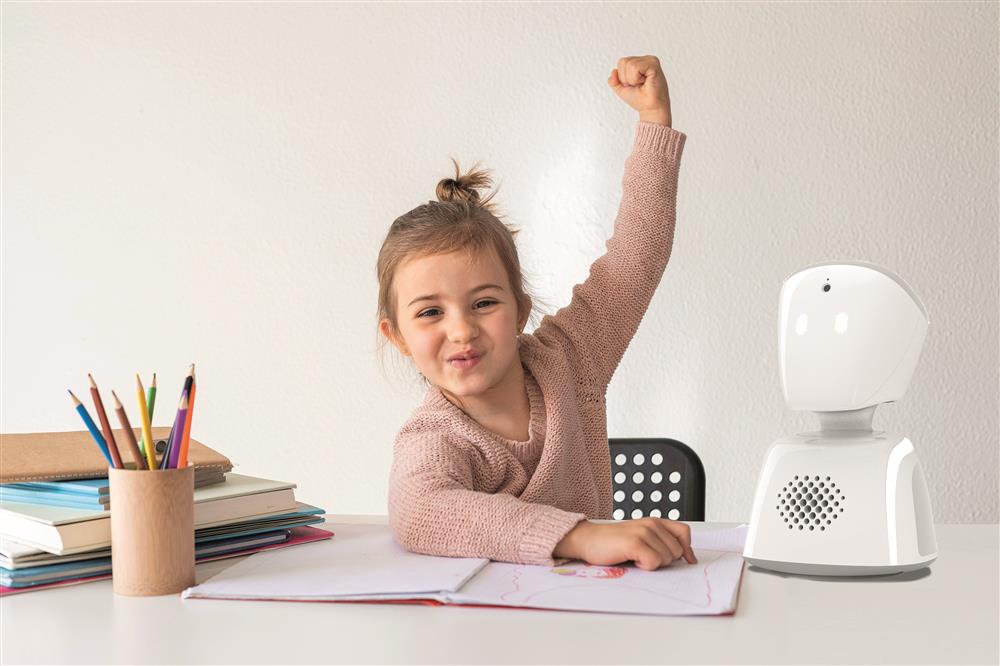Home-based children using a robot in classroom to learn and socialize
- Solution
- Interaction avatar
- Organization
- die Berater counsulting
- Country of Implementation
- Austria
- Region
- Europe
- Subregion
- Western Europe
- Start Year
- 2020
- First published
- 10.02.2023

Solution details
“The avatar project gives children and adolescents with chronical illnesses the chance to take part in social life.” Martin Röhsner, CEO & Founder, die Berater
die Berater Unternehmensberatungs GmbH, a consulting company focused on vocational training, is based in Vienna, Austria. In 2020 the company started to offer education with the help of physical robots, called avatars. Target audiences are children with and without disabilities who cannot attend school. The avatars are placed in the classroom and can be personalized. One of the goals is to facilitate reintegration into regular schools. By mid-2022 the avatars were offered to more than 95 children.
Problems Targeted
There are 18,000 children in Austria who cannot attend school regularly due to illness, chronic disease, or disability.
Solution, Innovation and Impact
The robots are placed in real-world settings, most often in classrooms. For example, they can be placed on a table among classmates while the child at home connects remotely via an app on their tablet. The child controls movements and line of sight, as well as communicate with their surroundings, such as with classmates, thanks to LED lights and cameras. Children can personalize the avatar through colours and stickers. The avatars are available in all federal states of Austria and at all school levels. Die Berater has created a support network with Med Uni Wien, which is responsible for psychological support, and Heilstättenschule Wien, which coordinates communication with all participating schools. Other partners such as SK Rapid Wien (Rapid Vienna Football Club) offer opportunities to connect to sport settings. The project is part of a research study with MedUni Vienna, with initial indications showing the avatars reduce social isolation and support participation in social life.
Funding, Outlook and Transferability
The Norwegian company No Isolation has developed the avatars (robot and software) and die Berater is using it based on a licence model. The service is provided for free to all users. As a social project, the financing is partly provided by die Berater as part of its CSR strategy. Other financing is sought from local charitable partners that work with young people with illness and disability. Between 2020 and 2022, €90,000 has been raised. The aim is to offer the service to more children in the coming years, and to do more research for better improved services in the future. Other goals include improving interaction for children with physical impairments, for example, by implementing an eye-tracking function, which is being piloted.
Media
Related information
- Connections
- 2
-
Organization
- People